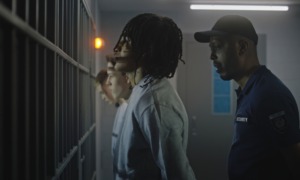The Supreme Court agreed today to hear two Florida cases that challenge the legality of sentencing minors to life in prison without the possibility of parole.
The Supreme Court, which last year declined to consider another case concerning a lengthy prison sentence for a 12-year-old who killed his grandparents, will hear the two cases, Sullivan v. Florida and Graham v. Florida, during next fall’s term.
Joe Sullivan, now 33, was 13 years old when a judge sentenced him to life in prison after finding he was involved in the rape of an elderly woman in her home in West Pensacola, Fla. Seventeen-year-old Terrance Graham received the same sentence after a judge found that he violated his parole from an earlier armed robbery by robbing a homeowner at gunpoint in December 2004.
In appeals to the high court, attorneys for both men argued that such harsh sentences for juveniles violate constitutional protections against cruel and unusual punishment. They emphasized that neither man was responsible for a homicide, and argued that all youths should be entitled to a parole hearing.
“The U.S. is the only country in the world where people as young at 13 can be sentenced to die in prison,” said Bryan Stevenson, Sullivan’s attorney and the Director of the legal aid group Equal Institute for Justice in Montgomery, Ala. “We have a whole generation of young kids who were sentenced to die in prison,” he added.
More than 2,000 individuals are serving sentences of life without parole for crimes that they committed as juveniles, according the Citizens for Juvenile Justice, an independent nonprofit organization based in Massachusetts.
“I think that within the law, absent life without parole, we have more than enough tools to adequately respond to crimes,” Stevenson said.
Child welfare advocates say that youths are developmentally and psychologically different from adults and should not be subject to prison sentences that ignore the possibility of rehabilitation. They also cite statistics which show that low-income and minority youths receive a disproportionate percentage of such sentences.
In 2005, the Supreme Court halted executions of juvenile offenders, ruling 5-4 in Roper v. Simmons that the practice was cruel and unusual. That decision paved the way for challenges to life without parole for minors, said Graham’s attorney Bryan S. Gowdy of Jacksonville, Fla., who called the case a “natural extension of Roper.”
“We treat youth differently under all areas of the law. To say that a mistake by a youth means that we should give up on him for the rest of his life is a mistake,” said Gowdy. “We think that is cruel and unusual punishment.”
The cases were appealed to the Supreme Court of the United States after Florida’s First District Court of Appeals upheld the sentences of both men. The appeals court sided with Florida Attorney General Bill McCollum, who argued that the “death (penalty) is different” and that life imprisonment is justified for violent or repeat offenders.
Stevenson, whose organization is mounting a national legal challenge and has similar cases pending in 12 states, said that Sullivan’s case underscores the dangers of sentencing juveniles to life without parole.
Sullivan, who denied that he committed rape, was convicted on the testimony of an older youth who was his alleged accomplice in the burglary. Sullivan’s trial lasted one day, and his court-appointed attorney declined to appeal the sentence at that time. In prison, Sullivan has been the victim of several sexual assaults and is confined to a wheelchair as a result of multiple sclerosis, Stevenson said.






























